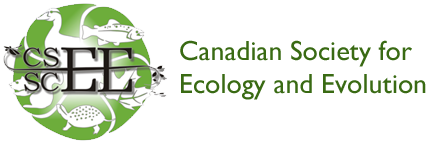Postdoctoral researcher opportunities (up to 2 postdocs) in research synthesis, meta-analyses, methodology, and meta-research in ecology and evolution (3 years)
Work: Intellectually demanding, but fun and rewarding, and suitable for someone who is seeking consistent personal and professional growth
Salary: $60K including benefits with annual increment
Place: The sunniest and coldest big Canadian city, (Edmonton, Alberta) which is also very affordable to live in
Period: 1-year probation + 2 years after the probation (start any time from 1 July 2024 - i.e. flexible)
Promise: It’s likely be the hardest but most fulfilling and productive period of your life
Personal goal: Your best and most impactful academic work(s) but also becoming a well-rounded collaborative researcher at the cutting edge of modern science
Team vision: To change the way we do science, especially in ecology and evolution
Qualities sought: We are seeking collaborative, diligent, inclusive, honest, responsible and open-minded people with humility in their ability and place in science.
Deadline: 31 Dec 2024
Note: We warmly welcome diverse and minority applicants – we believe that talent can come from anywhere
Context:
Prof Shinichi Nakagawa (Principal Investigator, PI) is a newly appointed Canada Excellence Research Chair in Open Science and Synthesis in Ecology and Evolution (CERC) at the University of Alberta UoA, Edmonton [news].
The PI will build an international hub or Centre for Open Science and Research Synthesis to revolutionize and improve scientific practises in ecology, evolution, and related fields, such as conservation and environmental sciences, by forming a large international collaborative network. The core interdisciplinary team will include biologists and computer and social scientists from UoA. This new lab (Centre) will conduct meta-analyses and other quantitative syntheses using all data types (e.g., citizen science data, climate data) and develop new methodologies. Therefore, we intend to lead and direct future research across many topics in ecology and evolution.
Over the next few years, the PI aims to build up a lab of ~20-25 people: postdocs, graduate students, research assistants, and a lab manager. This lab will be a place where people work together towards the ambitious vision and to reach their highest academic and personal potential. All lab members will have opportunities to participate in and help run collaborative workshops where participants learn synthesis methods and generate the latest evidence for various topics in ecology and evolution.
For more information about the PI and his past work, visit his Australian lab webpage [link] and also read his interview at Current Biology [link].
Position, salary, and location:
The appointment will be for three years, including a one-year probation period.
The salary starts at $53,762 ($60,000, including benefits) with an annual increase, and we also provide some help with one-off moving costs.
Successful applicants are expected to apply for external funding with the help of the PI (such as Banting Postdoctoral Fellowship: $70,000 per year).
Lab members will be expected to work at a newly refurbished lab space at the University of Alberta, Edmonton, one of Canada’s most affordable places to live [link].
Work descriptions and duties:
- Leading research synthesis, methodological, or meta-science projects in consultation with the PI and other collaborators (on research topics that align with the applicant’s interest and skills within PI’s CERC program remit)
- Leading or co-leading a large project that involves a wider group of collaborators and participants (research topics for these large projects will be aligned with PI’s CERC program – PI has a wealth of experience running such collaborations and will support postdocs; see the CERC application)
- Collaborating with other members, mentoring graduate students, and supervising graduate students with the PI
- Completing research projects, publishing them, assisting others in publishing, and assisting the PI with publication and grant preparation
- Engaging in public outreach and other activities for the general public, learned societies, and the University of Alberta, in consultation with the PI
Eligibility, necessary qualifications, and qualities:
- PhD in biology (ecology, evolution, and environmental sciences), psychology, statistics, mathematics, computer sciences, or related fields
- Applicants must have completed their PhD within the past five years (these time limits may be extended to accommodate interruptions in the applicant’s research career)
- Good record of publications, conference presentations, and other research outputs (compared with your peers and given opportunities)
- Excellent organizational and communication skills
- We are open to applications from any countries
Preferred experiences and skills:
- Experience in conducting meta-analyses, advanced statistical analyses, methodological projects, or meta-scientific projects
- Coding skills in R or other languages (e.g., Python, Julia, MATLAB; the use of the GitHub platform for collaboration will be mandated in the lab)
- Leading methodological publications or creating own R packages or software packages in other programming languages
- Leading a large collaborative project
- Ability to conduct simulation studies
- Experiences in and commitment to open science practices (e.g., publishing code, data)
How to apply:
Please send the PI (Shinichi Nakagawa: shinichi.nakagawa@ualberta.ca) an email with the following attachments (or a link from which the documents can be downloaded)
- A cover letter
- Scientific CV
- Contact details of three referees
- Three PDFs of representative publications
- A two-page (max) statement of research interests (please make sure to read the CERC application and discuss the link between your research interest and the CERC program).
- A one-page (max) diversity and social impact statement (describing strengths and experiences in equity, diversity, and inclusion, and/or social activities such as volunteering at learned societies and outreach activities, and/or other extra-curricular activities, and/or supervisory/teaching experiences)
- Please send the application by 31 Dec 2024
Important note:
The PI and the lab are committed to an equitable, diverse, and inclusive workforce and warmly welcome diverse and minority applicants, especially from historically marginalized and under-represented groups. Depending on their circumstances, part-time work arrangements will be considered.
Prospective applicants are also encouraged to contact the lab’s former and current members (see here) to learn how to work in the lab and with the PI.
